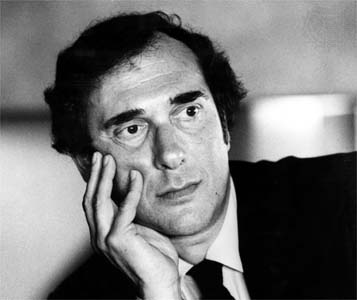Patrick McGoohan changed the way I looked at television. Before McGoohan, I had believed that television was merely a medium devoted to passing entertainments. But when I first caught an episode of The Prisoner playing out its surreal madness through a fuzzy black-and-white Samsung television at a very young and impressionable age, I realized that television could transform into a medium that grabbed you by the throat and had you pondering the mechanics and complexities of the larger world. McGoohan was the guy who proved without question that television was art. He created mesmerizing landscapes and provoked without apology. There were always fascinating motivations behind his creative decisions. Who were the strange guys sitting behind the Rover shrine at the end of “Free for All?” Why did McGoohan heighten the ends of certain sentences in his lines? He was often an eccentric actor, but he was always interesting and he refused to explain himself. To some degree, he was the thinking man’s Robert Mitchum.
It certainly helped that, as an actor, McGoohan played the consummate badass. Nearly every kid I knew who had seen The Prisoner wanted to be McGoohan. They wanted to build a kickass boat out of a faux artistic sculpture. They wanted to enter a room and not take any shit. McGoohan’s characters did all this without a gun.
As both Number Six and John Drake, McGoohan had one of the most commanding presences I have ever observed in a television actor. His fierce eyes, buried beneath his tall forehead, would shoot laser beams through the glass, demanding that you do something. Because he sure as hell was going to do something. So why couldn’t you? McGoohan smiled when he damn well felt like it, which was rarely. But he would crack that telltale grin every so often, letting you know that you could be in on the joke, if you had the smarts and the instincts to keep up. When McGoohan exploded in a furious rage, which was quite often, he had the talent of making you believe that the feral act was somehow rational.
Underneath his brazenness, McGoohan was a first-class entertainer, both as an actor and a writer-director. He had the rebellious courage to know damn well what he wanted. It wasn’t James Bond (which he turned down twice). And it sure as hell wasn’t playing John Drake forever. Instead, he used his status to produce one of the best television programs ever made. The episodes that he wrote, directed, and acted in had McGoohan dipping into wild surrealism (“Fallout”), devastating political satire (“Free for All”), and Beckett-like power plays (“Once Upon a Time” — see above clip).
Hollywood didn’t know what to do with McGoohan, but he stayed busy on episodes of Columbo (many of which he also directed) and appeared in a short-lived series as the brilliant detective Dr. Sid Rafferty. He was possibly too smart for the film industry, but he wasn’t too stodgy to send up his most famous creation in an episode of The Simpsons.
McGoohan was a maverick in a medium that prides itself on conformity and the lowest common denominator. But his fierce determination to make television better inspired other creative forces to turn out smarter material. For this, we have McGoohan to thank and his output over the years to marvel at.
